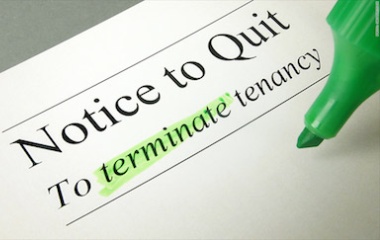
In our last post we discussed the responsibilities of a shomer entrusted to guard produce. The Mishnayot continue with a discussion of one’s responsibility when guarding a barrel, i.e., wine or oil, (Bava Metzia 40b) and, as we will discuss, the guarding of money. In Talmudic tmes banks as we know them did not exist; money changers served as the “investment bankers” of the day and the “dinar”, the dollar of the day, was on the silver standard[1] with the value of money determined by the amount of actual silver in coin itself. Instead of stuffing money under the mattress, people were wont to entrust their money with others. With money being an attractive target for thieves and with it being easy to steal and hide[2], extra caution was called for.
“One who deposited money with a friend and he bound them up [in a wallet] and put them on his back or he gave them to his minor children he is liable [for any losses] as he did watch in the way of the watchmen” (Bava Metzia 42a).
It is clear why leaving money around the house, or giving it to little children to guard is irresponsible and makes one liable for any losses. What the Gemara finds unclear is why one who carries money in a backpack is liable. Is that to be considered negligence? What else must one do? Rava gives the rather startling answer that to properly watch over money one must literally hold the money in one’s hand – anything less borders on negligence. Furthermore, he brings a biblical proof text to support his answer, “and you shall gather the money in your hand” (Devarim 14:25). This verse, speaking about bringing maaser sheni money to Jerusalem, is interpreted by Rava, in the name of Rav Yitzchak, to be teaching that in regards to money, “even though they are tied they should be in your hand.”
Shmuel argues – and it is not clear to me whether this is a leniency or stringency – that “money can be guarded only by burial in the ground.” One must literally bury the money if one wants to protect it. Fascinatingly, Rava claims that Shmuel relaxes this requirement if one receives the money on Friday afternoon[3]. One just does not have the time late on Friday to dig and bury, and hiding it somewhere in the house would be “the way of the watchmen.” However, if one does not bury the money immediately after Shabbat ends one would be liable for any loss. Not too much leeway here[4].
In a rather astonishing ruling the Gemara goes on to say that “nowadays”, where there are people who can search and detect hollowness in the ground “it can be properly guarded only [by placing it] under the roof beams.” Reflecting the ongoing battle between law enforcement and criminals, the Gemara continues that “nowadays” – presumably some time later than the first “nowadays” - “there are house breakers, it can be guarded only [within the void spaces] between bricks.”
Rava then quotes Shmuel’s “leniency”, which allowed the placing of money inside a wall. However “nowadays" when there are those who search and detect hollowness in the walls, "it can be guarded only in the handbreadth nearest to the earth or to the uppermost beams.”
This is a truly amazing discussion. The lengths to which one is required to go to properly guard someone else’s money are beyond belief (not to mention the determination of the thieves). Such is the care one must have when guarding the money of others. Yet such is not very practical[5] and halacha lemaaseh, in actual practice, the Shulchan Aruch (Chosen Mishpat 291:18) rules that one only need guard money as is commonly done by the masses. Whereas in Talmudic times that may have meant burying the money, today it would probably be sufficient to keep it locked in one’s home.
That there is some leeway in guarding money can be seen from the subsequent ruling, one that seems to be the polar opposite[6] of the meticulousness which Shmuel demanded that one must watch over money.
“A certain man deposited money with his neighbour, who entrusted it to his mother; she put it in her work basket and it was stolen.” Rava ruled that “all who deposit do so with the understanding that the wife and [adult] children [may be entrusted]” (Bava Metzia 42b). This despite the fact that generally, a depositor may argue that I gave you the money because “I do not want my objects in the hands of others” (Bava Metzia 36a). Jewish law recognizes the claim that one’s family is an extension of oneself, or as the halacha phrases it, isto kgufo and ba’al k’isto. The Gemara explains that there was no need for the son to tell his mother that the object belongs to someone else. Had he done so she would not have been as careful with the money; it is the money of her child that she watches over most.
[1] While gold coins did exist, with 25 silver coins equal to one gold coin, they were apparently rarely used as a medium of exchange and was considered a commodity not a currency (see Bava Metzia 44a).
[2] So concerned were our Sages with the possibility of theft that they insisted that those who worked in the Temple treasury wear clothes that had no pockets and nothing sewn on them (Mishna Shekalim 3:2). Even if we need not fear that spiritual leaders might steal – a fear that is, sadly, not always unreasonable – having pockets would open them up to suspicion of theft by others. Public figurers must not only uphold the highest of ethical standards they must also be perceived as doing such.
[3] The Gemara only exempts money given bein hashemashot, at twilight, on Friday afternoon. This cannot be understood literally as Shabbat begins before twilight, and handling money at that point would be a violation of the rabbinic laws of muktza – and digging a hiding place a biblical violation of chofer, one of the 39 melachot of Shabbat. Rather it emphasizes that even on Firday afternnon one must go to great lengths to ensure the money is well hidden.
[4] In another fascinating glimpse into the world – both religious and economic - of the Sages, the Gemara notes that if the depositor is a Torah scholar one need not bury the money immediately after Shabbat, as perhaps the money will be needed to purchase wine for havdallah.
[5] There are many examples of the Rabbis relaxing “difficult” requirements of the law lest one decide to not do the mitzva in the first place. The Sages did away with the requirement that one who finds a wallet must take an oath that he did not pocket any money himself; to do so might lead the finder to decide not to return the wallet at all.
[6] Interestingly, the Shulchan Aruch quotes both halachot, with the “amendment” implied, but not directly stated in the Gemara, that extraordinary measures are only called for in extraordinary times.



